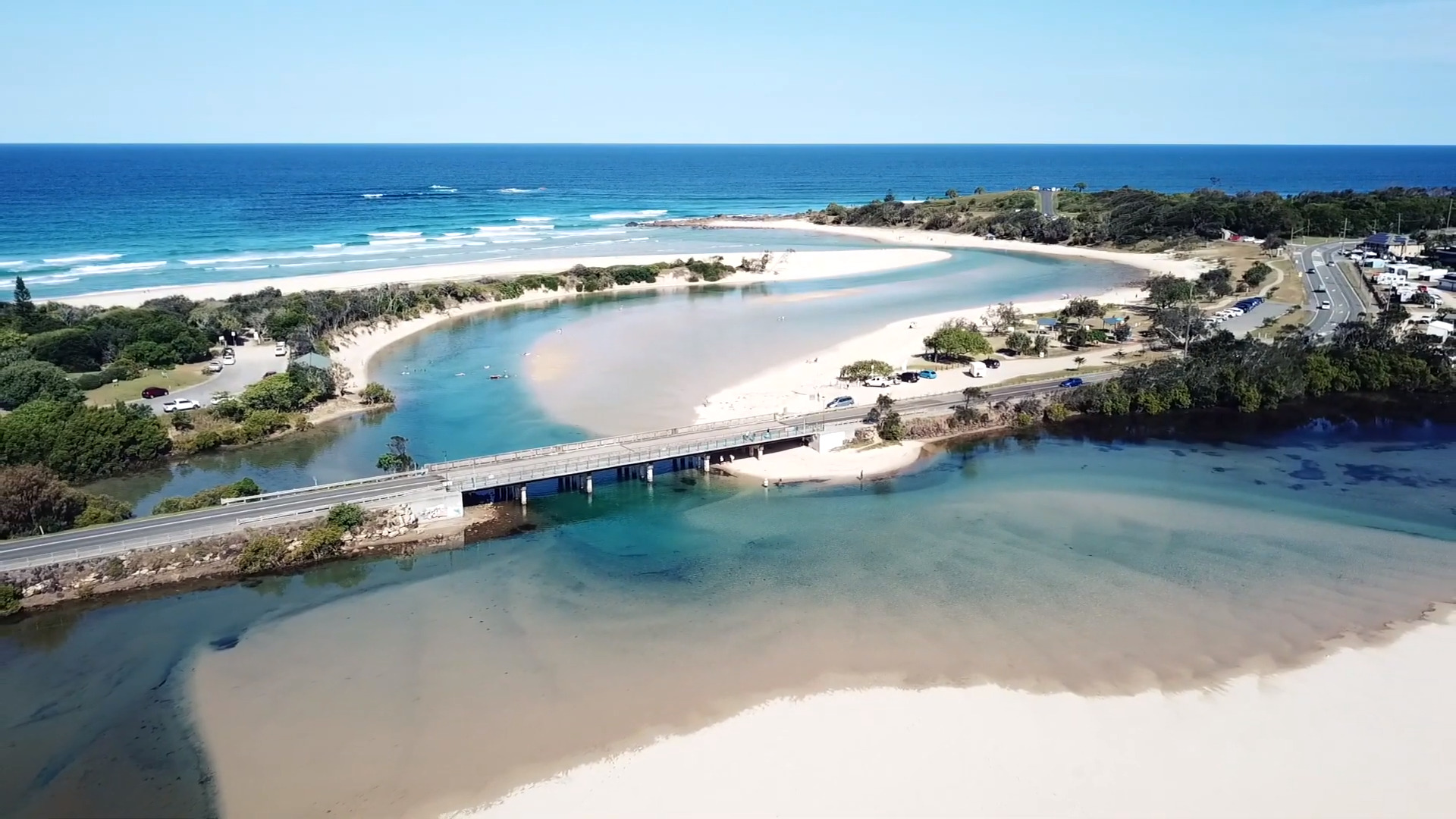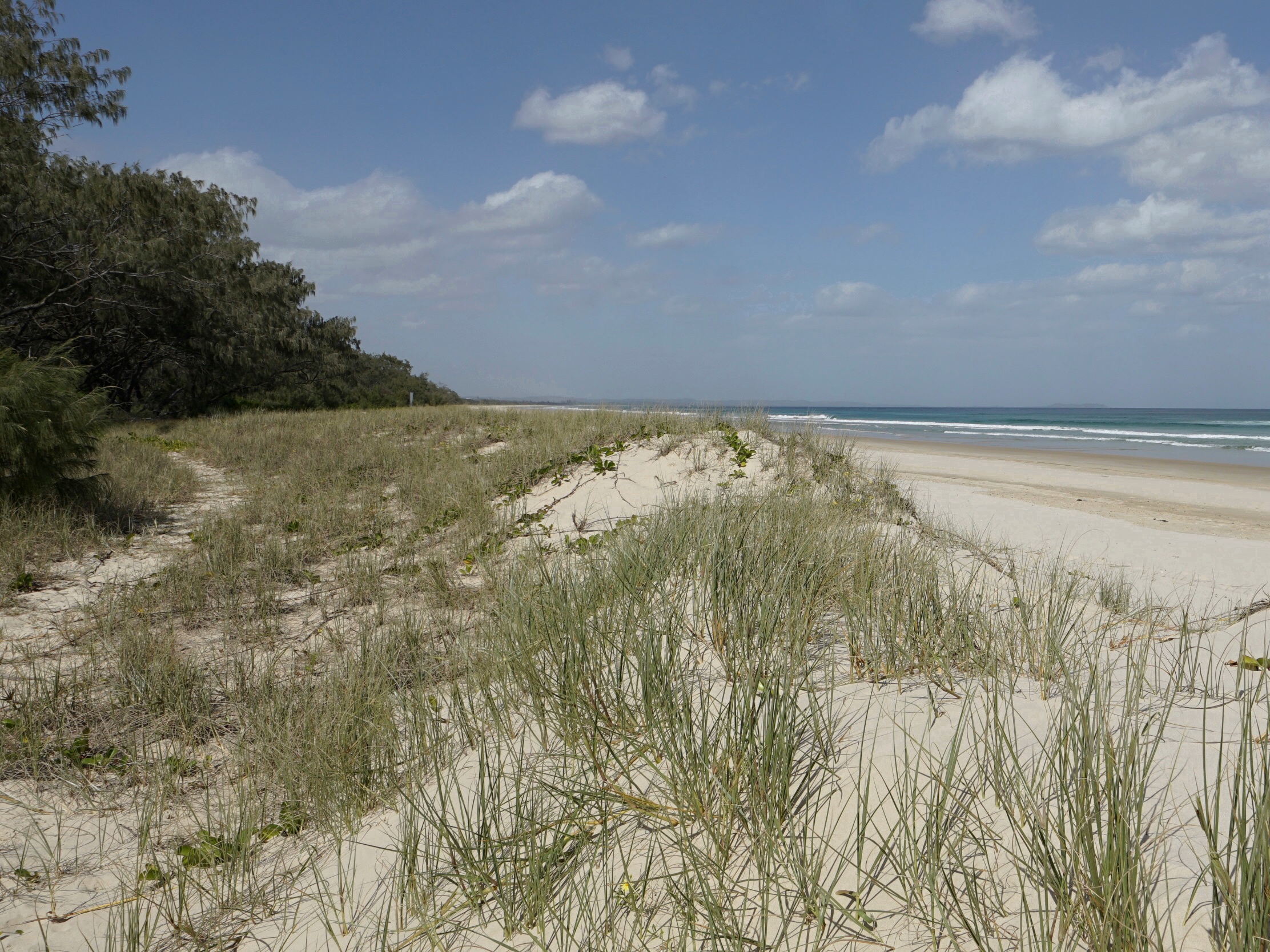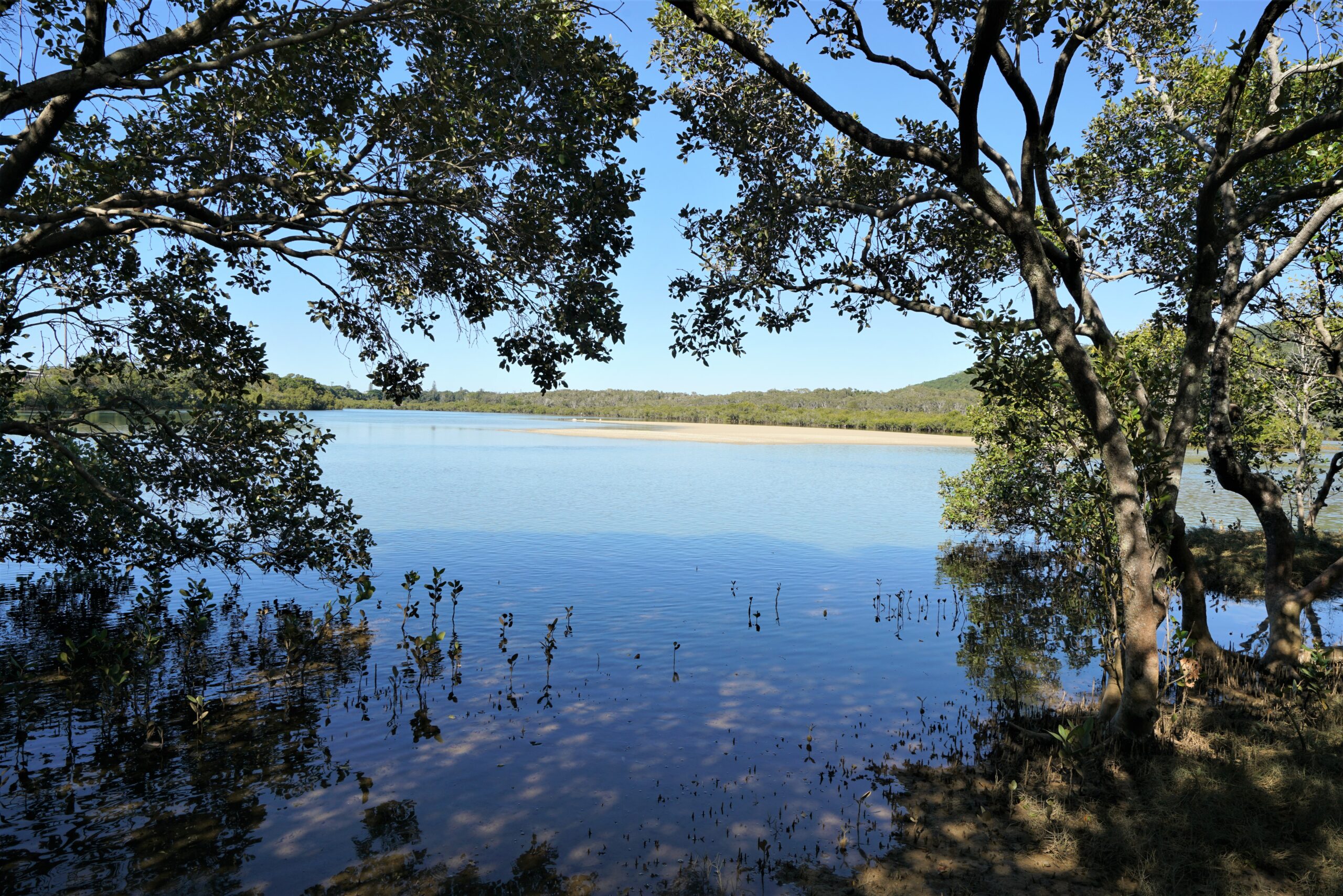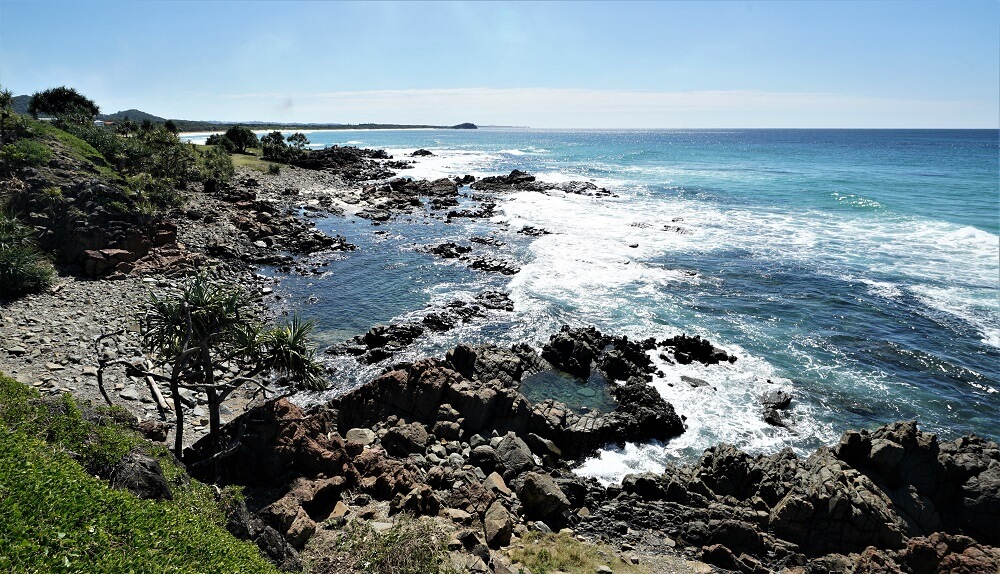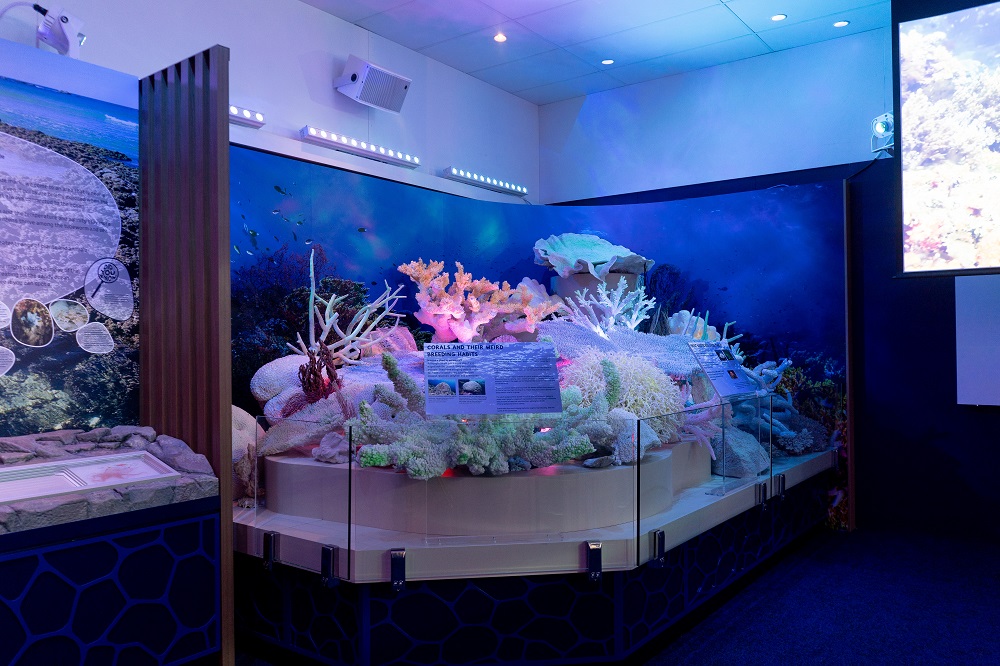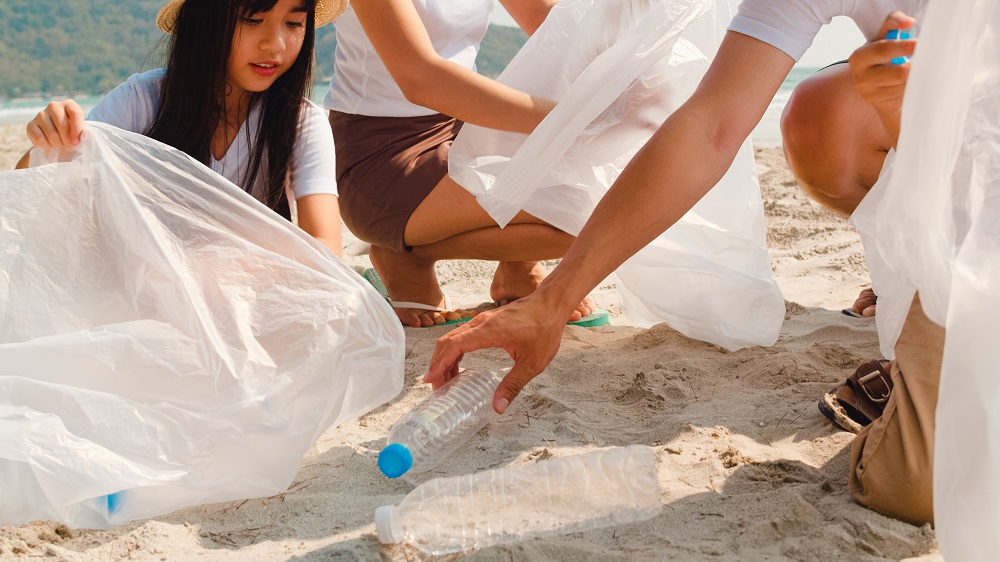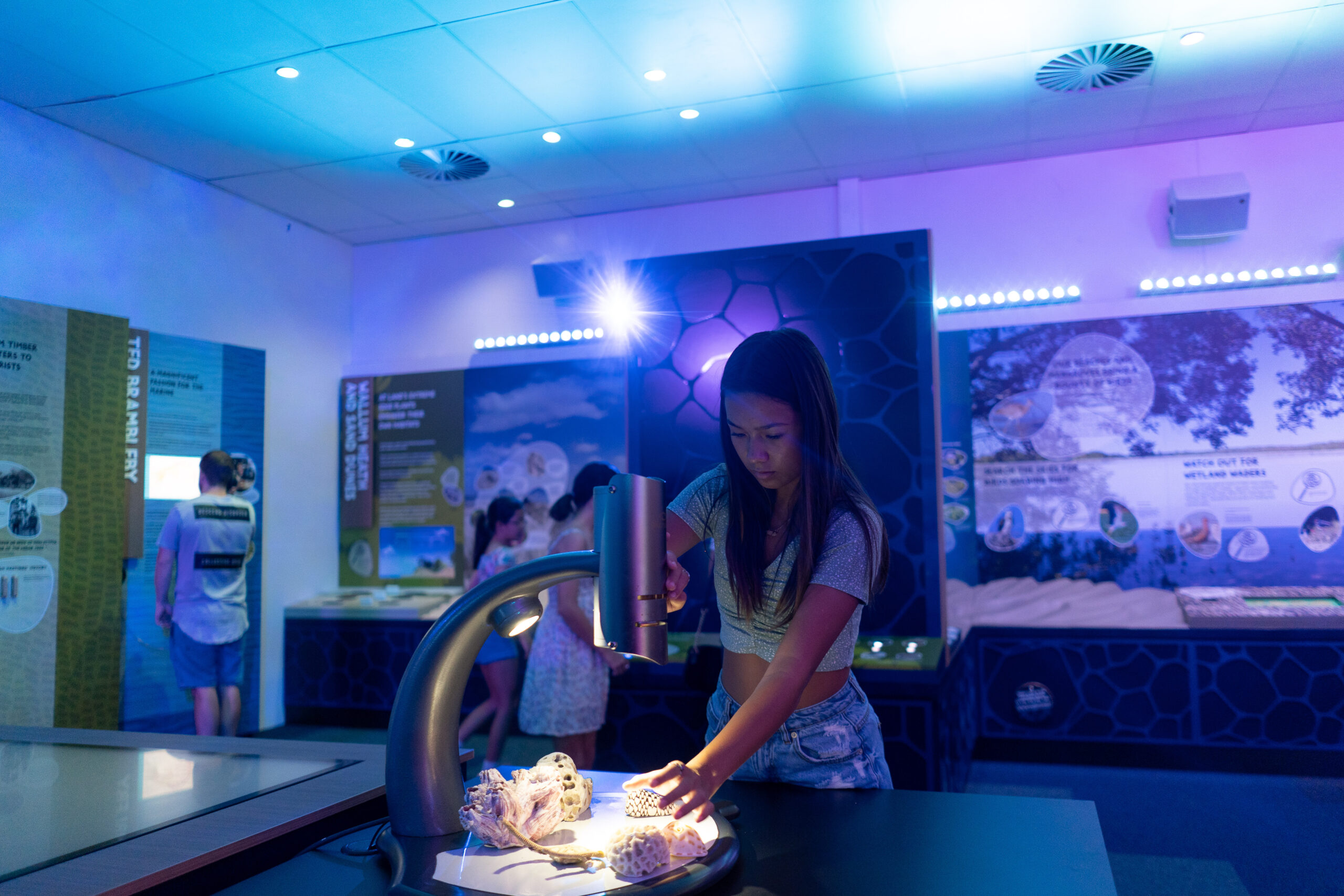The Marine Discovery Centre at Tasman Holiday Parks – North Star is a gateway to understanding marine biodiversity, emphasizing its unique exhibits and hand on interactive experiences that bring the ocean’s mysteries to life. Designed to inspire and educate, the Centre aims to help people, young and old, to understand and care for the aquatic environment, its inhabitants and vital eco-systems, and learn about the unprecedented challenges of climate change, marine litter, plastic waste, pollutants and fishing.
Hastings Point is known for its diverse ecosystems, blending coastal and hinterland environments. Conserving and protecting these ecosystems is essential to maintain the area’s natural beauty and ecological balance.
From delicate seashells and colourful coral skeletons to fascinating preserved marine creatures, each specimen tells a unique story of our underwater world. Each visit brings new surprises and fascinating discoveries. Dive in and let the exploration begin!
The Heroes of our Ecosystems
‘Eco’ means home or living space. The Rocky Shore, The Mangroves and The Sand Dunes are three different living spaces or ecosystems. Each one of them present different challenges that life must meet in order to thrive there. During your visit to The Marine Discovery Centre, you have the opportunity to delve in and explore how coastal ecosystems are built and shaped by certain ‘keystone’ species.
The Wonders of Wallum Heathland
When the last Ice Age ended about 12,000 years ago, sea levels rose and brought the Tweed shoreline 500m inland. When sea levels dropped again, the ocean left sandy beaches and dunes trapped behind the main beach dunes.
This is where Wallum heathland burst to life. In this ecosystem, there is an evolutionary battle for survival. Only those plants animals able to tolerate the extreme condition of the edge survive. In late winter and early spring, search out the mix of colourful wildflowers from deep pin boronias to the white rosette flowers of the wedding bush.
Wallum country has little shade and faces winds that blast anything in their path. Fire torches wallum’s dry shrubs. But many plants thrive here. The heat form fire forces some plants to open their pods to release seeds. Other plants drop seeds after very dry periods. This is a tight-knit community. The heaths, banksia’s, sedges and tea trees grow close together, creating a shield against the wind.
At Hastings Point, drier wallum us found on the higher parts of old dune ridges. These dunes date back 140,000 years to when the ocean was higher than today.
A unique ecosystem that’s home to a stunning array of flora and fauna awaits your exploration. Nestled amidst rolling dunes and captivating landscapes, our local Wallum heathland is a haven for biodiversity.
Our interactive displays are your passport to a world beneath the waves, where learning is as thrilling as the ocean itself. Let curiosity guide your exploration!
Secrets of the Beaches and Dunes
The sand on Australia’s eastern beaches originates from a long belt of granite stretching from Stanthorpe to Armidale. It formed about 240 million years ago when magma deep below the Earth’s crust rose and slowly cooled. Over time, the granite weathered into smaller particles as it flowed through waterways to the ocean.
The sand dunes that stretch up from the beach form a barrier that protects the ecosystems behind it from the ravages of the ocean and salt air. Spinifex and pigface plants colonise these dunes, trapping the sand. They are the pioneers, which establish the right conditions for larger plants such as she-oaks (casuarinas) and paperbarks (melaleucas).
Explore the ecological importance of beaches and dunes, focusing on the plant and animal life found in these zones and how they’re showcased at the Centre.
Mysteries of the Mangroves
Mangroves are true coastal superheroes, protecting our shorelines, providing habitat for various species, and serving as vital nurseries for marine life.
Sediments in our mangroves and surrounding areas originate from the erosion of the massive Wollumbin volcano (Mount Warning), which formed some 23 million years ago.
The mangrove ecosystems are vital nurseries for fish. They protect us from storms, clean the water and are home to young fish, crabs and a host of other animals. Migratory and resident shorebirds also depend on the rich supply of food found in mangrove mud and nearby mudflats.
Mangroves are one of the most productive and diverse ecosystems on the planet.
When visiting the Centre you will learn more about mangroves and the ecosystems they support.
Life on the Rocky Shore
The rocky shore of Hastings Point contain our oldest rocks, formed around 370 million years ago when the coastline was 200km inland. Sediments from an ancient volcanic mountain chain on the edge of this coastline washed into deep ocean trenches.
Over time, pressure and heat cemented these sediments into rocks. The rocks emerged at the surface as sea levels dropped and the Earth’s outer crust buckled, cracked and warped.
The Rocky Shore is a vibrant ecosystem with an impressive biodiversity. Just beyond the scope of our eyesight is a community of tiny critters that live amongst the plants, and tube worm colonies that flourish here. With the use of a microscope we can explore these mini worlds, discover their inhabitants and appreciate their significance. Take a guided tour of these minute ecosystems and then have a go at exploring them yourself. As the dropping tide peels back over the Rocky Shore a fascinating variety of rock pools is revealed. Each pool will support a community of plants and animals that call these places home. Rock pools offer us the opportunity to peer into marine worlds without having to get in a boat or snorkel or scuba dive. In this session we will explore some of our local rock pool videos as well as get to know some live specimens. This is a perfect session to complement our guided rock pool excursions.
The Rocky shore offers a great opportunity to encounter marine life without needing a boat or to scuba dive. Every day when the tide is low there is an opportunity to venture out over the rock platform where a range of fascinating marine life can be found living in pools, channels and crevices.
Delve into the diversity of life forms found on rocky shores, from tide pool inhabitants to crustaceans, and how the Discovery Centre brings this habitat closer to visitors.
Discovering Temperate Reefs
Australia’s temperate reefs are home to coral species found nowhere else in the world.
Temperate reefs have adapted to warming oceans faster than tropical reefs, so they could act as refuges for tropical coral species that might otherwise be lost to climate change.
Visit our Centre today to learn more about our temperate reefs and how we can protect and nurture them.
Conservation Efforts and Educational Programs
Tasman Holiday Park – North Star holds the globally recognised Eco-Tourism Australia certification. The parks long-term commitment to sustainability has seen the implementation of more than 50 environmental and sustainable initiatives, including re-establishing native habitats for Eastern Water Dragons and Bush Stone-Curlews. Our residential community benefit from fresh produce grown in onsite community gardens, fertilized by the onsite compost heap. Ripples Licensed Cafe produce is sourced from the local area to support local farmers. North Star offers a healthy, smoke-free environment at the park, provides discounts on coffee served in reusable cups and continually replants gardens with drought-tolerant native plants.
Interactive and Immersive Experiences
Embark on an underwater adventure without getting wet! Dive deep into the mysteries of the ocean with our interactive submarine display.
Experience measurable syllabus outcome-based presentations and field studies in the unique and diverse ecosystems of Hastings Point. We cater to your needs and offer the opportunity to build your own camp program across a range of nature, science based and team building sessions and activities.
Our team of passionate educators believe that our engagement and relationship with nature is paramount to our wellbeing and to the wellbeing of our ocean-planet home.
Education is the key to unlocking a continued understanding of the many and complex issues that exist.
The conservation of marine life is not just about preserving beautiful creatures, it’s about preserving the delicate balance of our planet’s ecosystems.
Our engagement and relationship with nature is paramount to our wellbeing and to the wellbeing of our ocean-planet home. Education is key to unlocking our continued understanding of the many and complex issues that exist.
At the Marine Discovery Centre, we want to inspire people to experience nature. We want to inspire children and adults alike to consider their individual footprints and become empowered to take responsibility for protecting our oceans, beaches, rock pools, creeks, rivers, and our unique country, now and into the future.
Open Saturdays 10am-12pm and also in school holidays on Tuesdays 10am-12pm Thursdays 5pm-7pm and
Booking essential at : http://www.marinediscoverycentre.com.au

